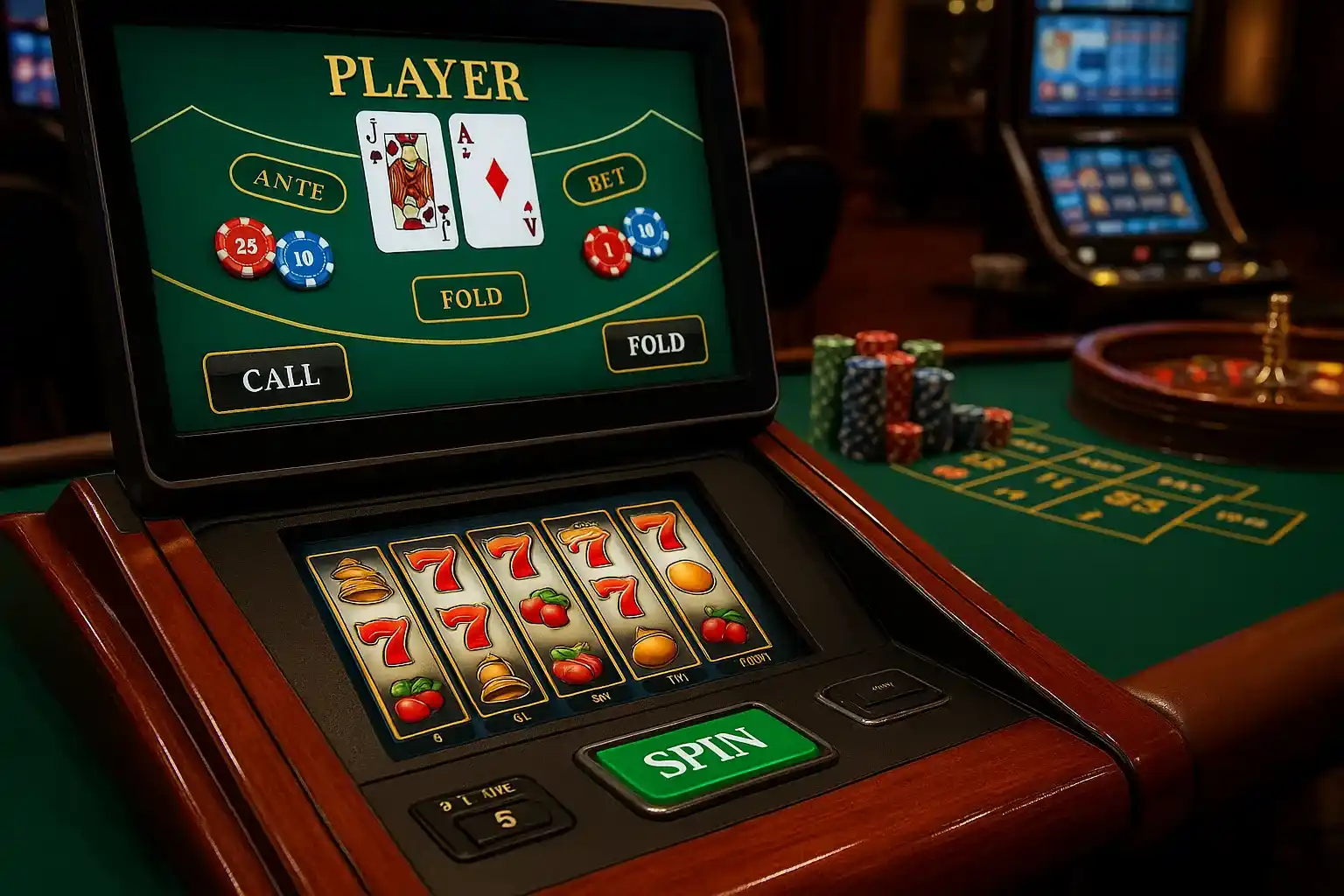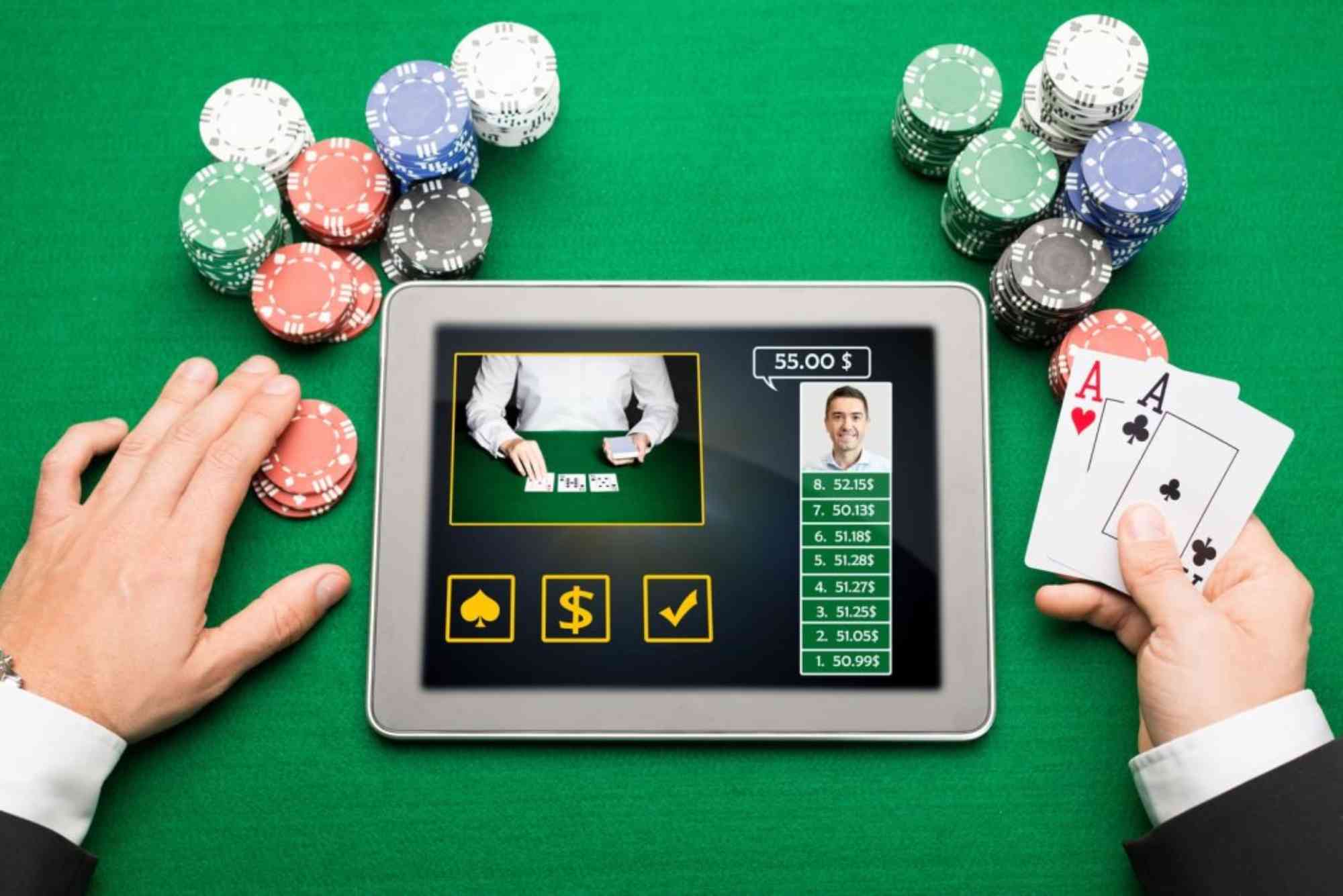Understanding Hybrid Casino Games
In recent years, the casino world has seen an intriguing evolution: hybrid games that blend the thrill of slots with the strategy of table games. As an avid gamer who’s spent countless nights trying new releases on my phone and at brick-and-mortar casinos, I’ve witnessed firsthand how these hybrids captivate both slot enthusiasts and table-game purists. In this article, we’ll explore what hybrid games are, how they work, and why they’re rapidly gaining popularity.
Hybrid games typically merge traditional slot mechanics—spinning reels, paylines, and bonus rounds—with elements drawn from classic table games like blackjack, roulette, or poker. From a high-level perspective, these hybrids often present as slot machines at first glance, complete with colorful symbols and animations. However, beneath that façade lies a strategic component usually associated with table games. For instance, a game might allow you to spin three reels for an initial outcome, then make a decision—hit, stand, or double down—just like in blackjack. That decision can influence your final payout or unlock a special bonus feature.
For players, the appeal is clear: you get the instant gratification of slots, combined with the decision-making depth found at a blackjack or poker table. Let me share an early experience. Last spring, I tried a hybrid slot-blackjack game at a local casino during its launch week. After spinning to reveal two cards, I needed to decide whether to “take a card” or “stay,” much like in blackjack. That choice determined whether I faced a traditional spin-to-win or a mini blackjack hand with near-certain payouts. The adrenaline rush of landing on a promising slot combination only to then make a strategic call created an entirely new level of engagement for me.
How Hybrid Mechanics Work in Practice
At the core, hybrid games rely on random number generators (RNGs) to ensure fairness, just like any other regulated casino product. What sets them apart is the layering of outcomes. Here’s a breakdown of a typical hybrid workflow—wrapped in a real-world example.
Imagine a game called “Roulette Reels,” which I tested at an online casino last month. To start, a player makes a base bet and spins the reels. If the reels align certain symbols—say, a red “7,” a black “A,” and a dice icon—this triggers the “table phase.” The screen transitions to a roulette table layout, complete with chip placement and a spinning wheel. At that moment, the player decides how much to wager on red, black, odd, or even, just as they would in a live roulette game. Once the ball lands, the player’s final payout is determined by multiplying their table win with the slot bet multiplier.
Because the initial slot spin already determined a guaranteed minimum payout, you never walk away empty-handed—even if your roulette bet loses. That safety net is a big part of what attracted me to this game. It felt like playing two games at once, yet the RTP (return to player) was carefully calibrated to keep the house edge manageable. Regulators require clear odds disclosures for both phases, so players know exactly how much each decision affects their expected return.
In another example, “Poker Spin Pro,” an online platform I often use introduced a hybrid poker-slot variant last summer. You spin three poker-themed reels, and if you hit a qualifying symbol set—like a pair of Jacks and a pair of Queens—you enter a short Texas Hold’em mini-game. You receive two virtual hole cards and decide whether to play or fold against a virtual dealer’s hand. If you win that hand, you receive a boosted payout on top of the slot win. Conversely, folding awards you a standard slot bonus. This design balances risk and reward, giving players multiple moments of excitement and strategic depth.
Why Hybrid Games Are Gaining Popularity
I’ve spoken to fellow players and developers alike, and several themes emerge when discussing why hybrids are here to stay. First, the diversity of gameplay appeals to a broader audience. Some players love the simple randomness of slots, while others prefer the skill element of table games. Hybrid titles effectively bridge that gap, offering something for both camps.
Second, developers see hybrids as a way to stand out in a crowded market. With hundreds of new slots released each year, capturing attention becomes challenging. By integrating table-like decision points, studios can create unique value propositions. During a recent industry conference, I chatted with a game designer who told me that hybrid prototypes consistently receive positive feedback in playtests, because testers appreciate the “freshness” of a combined experience.
Third, hybrids align well with mobile gaming trends. On smartphones and tablets, players often seek quick, engaging sessions. A hybrid game allows a short slot spin, followed by a concise decision round—akin to playing a full mini-table game in under a minute. That fits perfectly into modern lifestyles, where someone might want a satisfying session during a commute or a coffee break. From my own mobile sessions, I’ve noticed that hybrid games tend to hold my attention longer than standard slots, reducing the temptation to switch elsewhere.
Finally, there’s a growing appetite among gamblers for high-volatility titles with bigger potential payouts. Hybrids often incorporate multiplier mechanics tied to the table phase, enabling substantial wins if a player’s decision pays off. For example, a typical slot might offer a 1,000x jackpot, but a hybrid game could provide a 2,500x payout if the consecutive table decisions align perfectly. During one of my most memorable sessions, I spun a hybrid slot with a blackjack bonus that let me double down on a low pair. That call turned a small win into a life-changing payout—something I’d never experienced on a traditional slot.
Regulatory and Practical Considerations
Hybrid games may sound exciting, but they also present unique regulatory challenges. Because they blend pure chance (slots) with elements of player choice (table games), regulators must evaluate both aspects carefully. In jurisdictions like Malta, the UK, or Gibraltar, operators need to ensure that the game’s underlying RNGs are certified for fair play and that the skill elements don’t inadvertently turn the game into unlicensed poker or blackjack.
During a compliance seminar I attended, gaming authority officials highlighted that hybrid games require separate RTP disclosures for each phase. If a slot spin entry has a 95 percent RTP and a following blackjack decision stage has a 90 percent RTP, the combined game’s overall RTP must be clearly communicated. Developers also need to guard against any inadvertent predictability. For instance, if visual animations hint too strongly at the upcoming table outcome, regulators might view this as misleading. That’s why robust testing and certification are crucial.
On the player side, understanding hybrid mechanics can be daunting at first. I’ve noticed forums buzz with questions like, “Should I always hit or stand in a hybrid blackjack slot?” While table decisions might seem familiar, the paytable multipliers change traditional strategy calculations. In my experience, reputable casinos provide tutorials or demo modes to help players learn without risking real money. It’s wise for anyone trying hybrids to start with free play, gauge the decision dynamics, and then move to real-money sessions once comfortable.
One other factor to consider: some players who prefer looser regulatory environments look for alternatives beyond mainstream restrictions. That’s where “betting sites not on GamStop” become relevant. In regions where self-exclusion schemes like GamStop restrict access to local casinos, some gamblers explore non-GamStop options that offer hybrid titles not found on licensed platforms. To discover such sites, check out betting sites not on GamStop. While these sites carry different legal and security considerations, they do expand the variety of hybrids available, especially in markets dominated by a handful of big providers.
Future Trends and Innovations
As I look ahead, it’s clear that hybrid games will continue to evolve rapidly. One emerging trend is the integration of live dealers into hybrid experiences. Imagine spinning reels online and then joining a live-streaming dealer for a quick blackjack decision. Some European casinos already pilot such hybrid-live tables, where video feeds transition seamlessly from slot animations to a live table camera. Players tell me this adds authenticity and social interaction that purely RNG-driven games lack.
Augmented reality (AR) could be another game-changer. Picture scanning a tabletop at home with your smartphone, and a digital hybrid slot/table game overlays onto your real-world environment. You’d spin physical-looking reels atop your coffee table, then push virtual chips with a swipe gesture. Early prototypes are in development, and during a demo I witnessed at a tech expo, even those basic AR hybrids felt remarkably immersive.
Blockchain technology and provably fair mechanics also have a role to play. While most hybrid games rely on centralized RNGs, decentralized solutions could let players verify both the slot spin and table outcomes on a public ledger. That transparency might appeal to those skeptical of traditional casino fairness. In some Asian markets, I’ve already seen small studios experiment with hybrid titles that let you verify each phase’s randomness via a blockchain explorer. It’s too soon to say whether that approach will gain mainstream traction, but it’s an exciting possibility.
Another frontier is cross-platform interoperability. Companies are exploring cloud-based hybrid engines where players can start a session on their desktop, switch to mobile, and pick up exactly where they left off—complete with saved hand history and slot multipliers. That seamless continuity mirrors how many of us consume other forms of media, like streaming movies across devices. For hybrid gaming, that means deeper engagement and the freedom to chase a lucrative table sequence no matter which screen you’re on.
Lastly, social features will likely intensify. Beyond simply tracking high scores or leaderboards, next-gen hybrids might allow real-time head-to-head matches where two players spin parallel reels and then meet at a shared table phase. I encountered an early beta of such a format at a developer meetup. Two friends could each spin the slot portion, and if both triggered the table stage, they joined the same live video table to compete. Those sessions felt more communal than solo play, and I can imagine entire eSports-style tournaments centered on hybrid game championships within the next couple of years.
Final Thoughts
Hybrid games that combine slots and table elements represent a thrilling frontier in casino entertainment. By fusing the instant excitement of spinning reels with the strategic depth of poker, blackjack, or roulette, they offer a fresh way to play that keeps both slot lovers and table-game aficionados coming back for more. From my own experiences—whether chasing multipliers on a hybrid blackjack slot or testing the latest AR prototype—I’ve seen how these titles can transform a routine gaming session into a dynamic, memorable adventure.
As a player, it’s wise to approach hybrids with curiosity and caution. Take advantage of demo modes, study paytables, and understand how each decision impacts your expected returns. And if local laws or self-exclusion schemes limit your options, exploring “betting sites not on GamStop” might reveal titles you can’t find elsewhere. Of course, always prioritize reputable operators and secure payment methods, regardless of whether you play on licensed or non-GamStop platforms.
Regulators, developers, and players alike will shape the future of hybrids. With innovations in live streaming, AR, blockchain, and cross-platform play on the horizon, expect these games to grow even more sophisticated. In the meantime, take a spin, make that strategic call at the table phase, and enjoy the best of both worlds—because hybrid gaming truly offers a unique, multifaceted casino experience unlike anything that came before.




